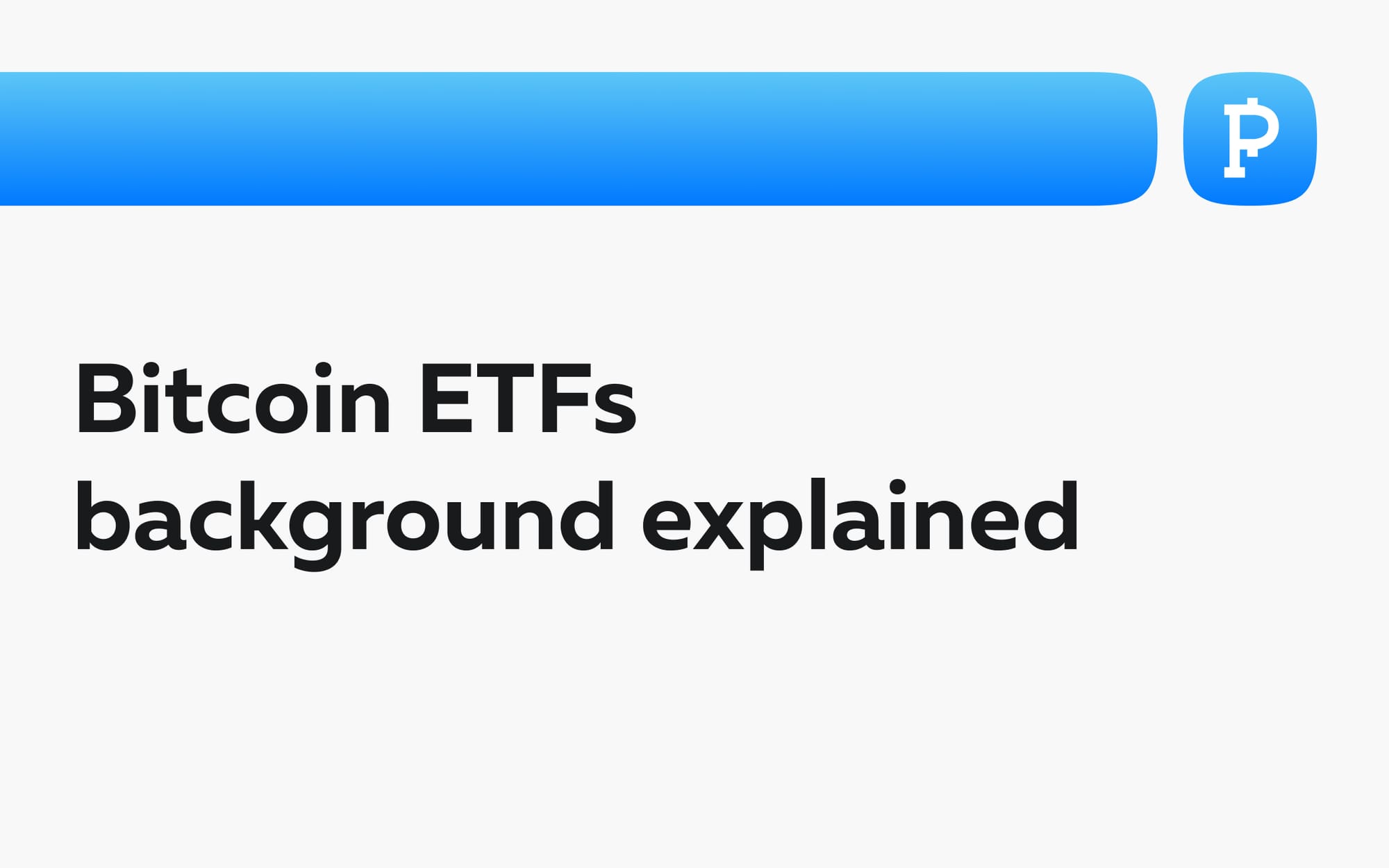The value of Bitcoin is tracked by an exchange-traded fund called the Bitcoin Exchange Traded Fund. Instead of using cryptocurrency trading platforms, ETFs can be bought, sold, and traded on traditional stock exchanges. Through a trusted vehicle of which they might already be aware, this is an excellent way to give mainstream investors and speculators exposure to the price of bitcoins.
The exchange-traded fund is not a new concept, nor is it uncommon in the finance sector. Exchange-traded funds (ETFs) offer investors price exposure to a variety of assets and industries, such as commodities and currencies. They can also be configured to concentrate on environmentally conscious or diverse companies.
Although investors can purchase bitcoin futures ETFs, the US has not yet approved a spot bitcoin ETF. The distinction between the two is that bitcoin futures ETFs are backed by bitcoin derivatives, whilst spot bitcoin ETFs are backed by real bitcoin (BTC). The range of alternatives accessible to American investors would be increased with the introduction of a bitcoin ETF. There is new hope that a spot bitcoin ETF may be approved in the United States after reports surfaced that massive asset management company BlackRock may be applying to an exchange-traded fund (ETF).
Positive and Negative Impacts of the Bitcoin ETF
One of the identifiable positive impacts of a Bitcoin ETF is Convenience. Using an ETF eliminates the need to open an account at cryptocurrency exchanges or learn how to use a wallet. Also, users receive price exposure without really owning any Bitcoin by using investment vehicles and tax laws that they are more accustomed to, rather than directly owning any Bitcoin.
The Diversity in an ETF's portfolio makes it possible to hold multiple assets. Real Bitcoin, equities connected to Bitcoin, and other assets could be included in a bitcoin exchange-traded fund (ETF). Investors acquire the chance to diversify their portfolios held in traditional markets, even if they solely own Bitcoin.
Even if these advantages are substantial, an ETF for Bitcoin can only accomplish so much. There are always going to be certain things that people might see negatively.
Since investors in a Bitcoin ETF only receive price exposure rather than ownership of the asset, this implies they lack actual possession of Bitcoin. Also, it cannot be traded for other cryptocurrencies.
ETFs frequently include management fees in the fund's investment mix, which means that a portion of the pool's assets will go toward paying the fund's managers rather than toward investments. Before investing, find out what an ETF's "expense ratio" is; ideally, it should be less than 1%.
Although cryptocurrency can be bought or traded around the clock, financial platforms like the New York Stock Exchange (NYSE) are only open from Monday through Friday from 9:30 a.m. to 4 p.m. ET. As a result, there is a big fluctuation in the price of Bitcoin.
Recent Developments of the Bitcoin ETF
Blackrock (BLK) applied for a spot Bitcoin ETF to the U.S. Securities and Exchange Commission (SEC) in June. As a result, investors will be able to access Bitcoin without needing to maintain their funds in a Bitcoin wallet—especially retail investors.
As a result of analyst anticipation that large sums of money will pour into Bitcoin spot ETFs should the SEC approve them, the price of Bitcoin has increased. It is projected that the market for Bitcoin spot ETFs will reach $100 billion soon, per a Bloomberg story. According to Galaxy research, inflows into spot Bitcoin ETF products might reach $39 billion in three years, up from $14 billion in the first year.
Nevertheless, there is still ambiguity around the SEC's ruling. Prospective ETF issuers have reportedly had several rounds of discussions with the SEC, during which time they have allegedly amended their applications to satisfy regulatory requirements.
BitGo CEO Mike Belshe recently told Bloomberg, "I'm optimistic, but I think it's quite likely we have another round of rejections before we get the positive news."
Conclusion
An important turning point in the history of the cryptocurrency market is the potential approval of a Bitcoin exchange-traded fund (ETF), which has the potential to bring about many significant shifts. The approval in question represents a noteworthy advancement in the integration of digital assets and conventional finance, hence driving the industry's overall progress.
It is imperative to stay cognizant of the issues and difficulties that come with receiving regulatory approval, though. The inherent volatility and regulatory uncertainty of the cryptocurrency market necessitate careful thought and emphasize the need for strong investor protection policies.
🔥 Buy PXP tokens on Bitrue: https://bit.ly/3JEreHu
🔥 Buy PXP tokens on WhiteBIT: https://bit.ly/3qJrjRH
💰 Earn up to 7% yearly with PXP staking program in PointPay Bank: https://pointpay.io/staking
💡 Check PointPay Live-Roadmap (PointPay development in real-time): https://pointpay.io/live-roadmap/
🏦 Remember, we are PointPay, and we are beyond banking!
